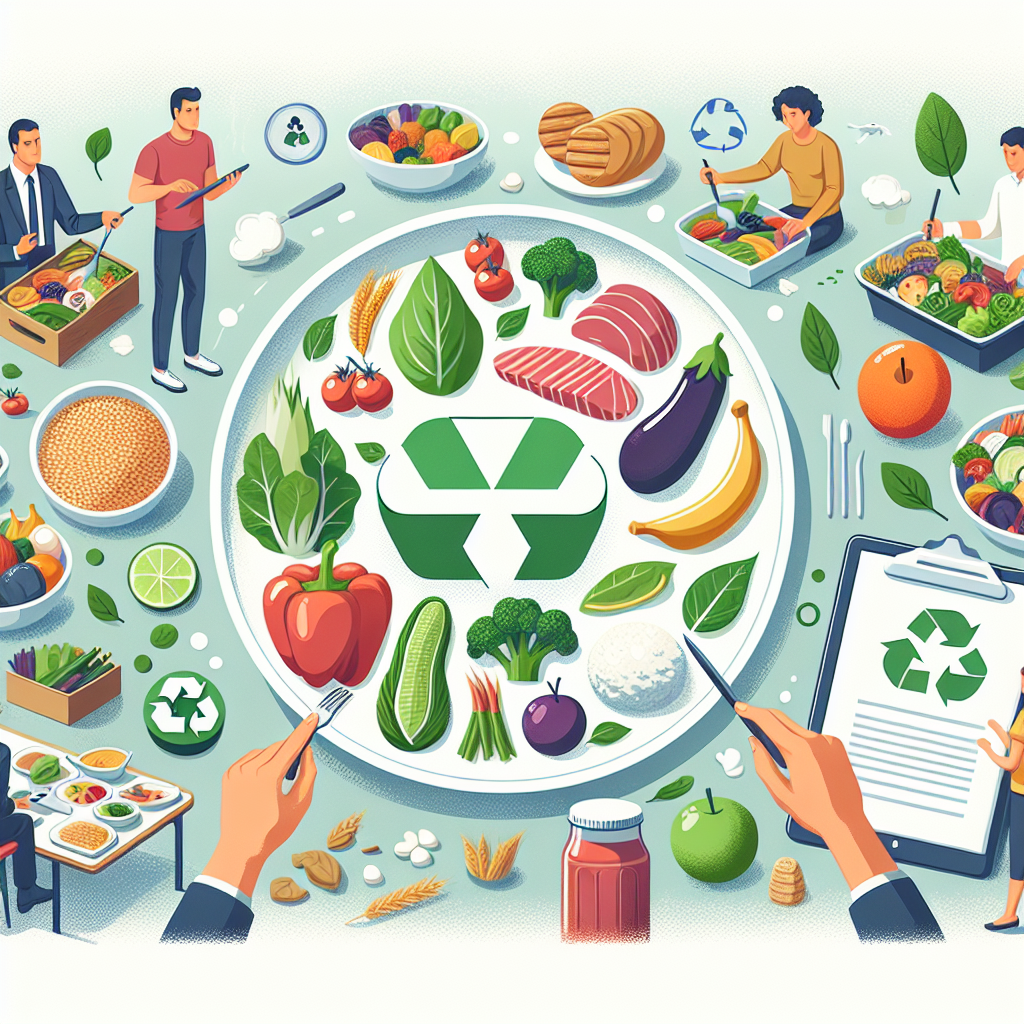In an age where dietary trends come and go, understanding and maintaining balanced nutrition remains a cornerstone of well-being. While trendy diets may capture the spotlight, the key to a healthy lifestyle lies in embracing a balanced approach to nutrition that is both sustainable and personalized. This article delves into the foundations of balanced nutrition, offering expert tips and insights to guide you on your journey to nutritional harmony and sustainable eating habits.
Understanding the Foundations of Balanced Nutrition
Balanced nutrition is the art of consuming the right proportions of nutrients—carbohydrates, proteins, fats, vitamins, and minerals—to maintain optimal health and function. It’s not just about eating enough but ensuring that what you eat supports your body’s needs. The foundation of balanced nutrition is rooted in understanding how these nutrients work together to fuel the body, support cellular function, and promote overall well-being.
Carbohydrates often get a bad rap in modern diets, yet they are the body’s primary energy source. Complex carbohydrates, found in whole grains, legumes, and vegetables, provide sustained energy and are rich in fiber, which supports digestive health. Balancing carbohydrate intake with protein and healthy fats is essential for maintaining steady energy levels throughout the day.
Proteins are the building blocks of the body, crucial for repairing tissues, producing enzymes, and supporting immune function. Sources such as lean meats, fish, dairy, beans, and nuts offer essential amino acids that the body cannot produce on its own. Including a variety of protein sources in your diet ensures you get all the essential amino acids necessary for optimal health.
Fats, once vilified, are now recognized for their vital role in balanced nutrition. Healthy fats, such as those found in avocados, nuts, seeds, and olive oil, support brain health, hormone production, and cell function. The key is to focus on unsaturated fats while limiting saturated and trans fats, which can contribute to heart disease.
Vitamins and minerals, though needed in smaller amounts, are crucial for maintaining health. They support a range of bodily functions, from bone health to blood clotting and immune defense. A diverse diet rich in fruits, vegetables, and whole grains typically provides an ample supply of these micronutrients, ensuring that deficiencies do not impair bodily functions.
Hydration is often overlooked in discussions of balanced nutrition, yet it is fundamental to every bodily process. Water aids digestion, transports nutrients, and regulates body temperature. Ensuring adequate fluid intake, primarily through water, is a simple yet effective way to support overall health and enhance the benefits of a balanced diet.
Expert Tips for Achieving Nutritional Harmony
Achieving nutritional harmony involves more than just adhering to dietary guidelines; it requires a personalized approach that considers individual needs and lifestyle factors. Experts suggest starting with a dietary assessment to identify areas of improvement and to develop a tailored eating plan that aligns with personal health goals.
One effective tip is to focus on portion control rather than restriction. By being mindful of portion sizes, individuals can enjoy a variety of foods without overindulging. Using smaller plates, measuring servings, and paying attention to hunger cues are practical strategies to prevent overeating and maintain a balanced diet.
Incorporating a rainbow of fruits and vegetables into meals not only enhances the visual appeal of dishes but also ensures a wide range of nutrients. Each color represents different phytonutrients that offer unique health benefits. For instance, red fruits and vegetables are rich in lycopene, while green ones are high in chlorophyll and fiber.
Meal planning and preparation can significantly contribute to nutritional harmony. By planning meals in advance, individuals can ensure they include a balance of macronutrients and minimize reliance on processed foods. Preparing meals at home allows for greater control over ingredients and portion sizes, making it easier to adhere to a balanced diet.
Listening to the body’s signals is another expert tip for achieving nutritional balance. This involves recognizing when you’re truly hungry and when you’re full, as well as understanding the difference between physical hunger and emotional cravings. Mindful eating practices can help develop a healthy relationship with food and prevent overeating.
Finally, seeking guidance from a registered dietitian or nutritionist can provide valuable insights and support. These professionals can offer personalized advice, help set realistic goals, and provide accountability. Their expertise can be particularly beneficial for individuals with specific health conditions or dietary restrictions, ensuring nutritional needs are met without compromising health.
Insights into Sustainable Eating Habits
Sustainable eating habits are essential for long-term health and well-being. They emphasize not only personal health but also the health of the planet. One key insight into sustainable eating is the importance of reducing food waste. Planning meals, using leftovers creatively, and composting are effective strategies for minimizing waste and making the most of available resources.
Choosing locally sourced and seasonal produce supports sustainability by reducing the carbon footprint associated with transporting food over long distances. Additionally, local produce is often fresher and more nutrient-dense, providing greater health benefits. Farmers’ markets and community-supported agriculture programs are excellent sources for local foods.
Plant-based diets are increasingly recognized for their sustainability. Reducing meat consumption and incorporating more plant-based meals can significantly lower environmental impact. This does not necessarily mean adopting a vegetarian or vegan diet but rather finding a balance that includes more plant-derived foods, which are typically less resource-intensive to produce.
Practicing mindful consumption involves being aware of the environmental and social impacts of food choices. This includes considering the ethical implications of food production, such as fair trade practices and animal welfare. Opting for products with sustainable certifications can help consumers make more informed and responsible choices.
Education and awareness are crucial components of sustainable eating habits. Staying informed about food production processes, nutritional content, and environmental impacts empowers individuals to make choices that align with both health and sustainability goals. This knowledge can be shared within communities, fostering a culture of sustainability.
Finally, sustainable eating habits require adaptability and openness to change. As individuals learn more about the impacts of their dietary choices, they may need to adjust habits and preferences. Embracing flexibility and a willingness to try new foods and methods of preparation can lead to a more sustainable and enjoyable eating experience.
Unlocking balanced nutrition is a journey that involves understanding foundational principles, applying expert advice, and embracing sustainable habits. By focusing on nutritional harmony and sustainable choices, individuals can support their health while contributing to the well-being of the planet. As we navigate the complexities of modern dietary landscapes, these insights and tips serve as a guide to achieving a balanced, nourishing, and sustainable lifestyle.




